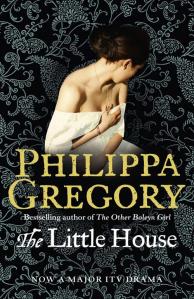In my current job as a Runner, I’ve spent a lot of time in a news studio late at night. Which lead to the sleepy absorption of rather a lot of news. Which lead in turn to a bit of a revelation: turns out I am an absolute sucker when I’m tired. Usually, I would describe myself as only a half-hearted romantic. The odd well-planned and brilliantly executed gesture is all well and good, I LOVE surprises, and hand-written notes should not be allowed to die out. Outside this fairly strict definition of “sweet”, however, I’m something of a valentine’s-day scrooge, eye-rolling and cringing with the best of them. It was a bit strange then, to learn that, when read at 2 in the morning, stories like this have the ability to make my eyes brim with sentimental tears. No, seriously. Flight MH370 is still missing, two high-profile sexual assault cases are currently being heard in court, and today’s Oscar Pistorius coverage reached an emotional fever pitch, but it was the story about the builder who spent three years renovating a beach-front Victorian loo as an anniversary gift for his wife which broke the camel’s back, and had me reaching for the tissues.
I seem to have found the chink in my romantic armour: the labour of love. Why are they so undeniably adorable? It must be something to do with their usual absence of clichés, and also because donating time and skill to something means that the labour of love is one of the few romantic gestures which every one (even impoverished runners and their equally impoverished boyfriends) can dream about, plan, and execute. Looking back over a few of the things which have made me especially happy over the last few wintry weeks, I guess a lot of them could be deemed a labour of love: the Lebanese feast I cooked for my mum and dad, the birthday card I made and sent overseas, the costume I helped cobble together for my boyfriend; working on things for other people is rather a lovely way to be romantic or demonstrative, without a cliché in sight.
For inspiration, and to further stimulate an attitude of doing nice things for people, I’ve been thinking about some of my favourite labours of love:
 Elizabeth Barrett Browning’s “Sonnets from the Portuguese”: falling deeply in love with her husband-to-be (the also good for a romantic gesture or two, Robert Browning) Elizabeth Barrett wrote a collection of 44 love sonnets in the period leading up to her runaway marriage. The collection includes the famously gorgeous ‘How do I love thee? Let me count the ways’ but also many other lines which are heart-stopping because so honestly and totally in love (“And I who looked for only God, found thee/ I found thee; I am safe, and strong, and glad.”)
Elizabeth Barrett Browning’s “Sonnets from the Portuguese”: falling deeply in love with her husband-to-be (the also good for a romantic gesture or two, Robert Browning) Elizabeth Barrett wrote a collection of 44 love sonnets in the period leading up to her runaway marriage. The collection includes the famously gorgeous ‘How do I love thee? Let me count the ways’ but also many other lines which are heart-stopping because so honestly and totally in love (“And I who looked for only God, found thee/ I found thee; I am safe, and strong, and glad.”)
What makes this book of poems a truly epic labour of love is that it never would have appeared without the efforts of both partners: hearing her husband ranting about the limitations of “personal poetry”, Elizabeth showed Robert the 44 sonnets she had written about her love for him. Insisting that they were the best sonnet sequence since Shakespeare, Robert urged his wife to publish them, even supplying the title which would afford the couple a modicum of privacy.
This guy, and the marriage proposal which can only accurately be described as “frickin amazing” . Trust me, I’ve watched a fair few youtube proposals in my time. This one is the best.
 Margaret and William Cavendish ‘The Blazing World’: a marvelous writer, intrepid intellectual explorer, and rather glorious eccentric, Margaret Lucas was in her early twenties when she married the ageing William Cavendish, 1st Duke of Newcastle. Yet their marriage seems to have become a happy one of mutual support, and as she was penning her extraordinary piece of science fiction ‘The Blazing World’, she managed to write into the fantastical story a plea for the return of her husband’s lost wealth, confiscated by parliament after the end of the English Civil War. She would also write his biography. In his turn, he encouraged her in her writing and in her philosophic and scientific explorations, and wrote a touching poetic tribute to his wife’s imaginative power as a dedication when ‘The Blazing World’ was published.
Margaret and William Cavendish ‘The Blazing World’: a marvelous writer, intrepid intellectual explorer, and rather glorious eccentric, Margaret Lucas was in her early twenties when she married the ageing William Cavendish, 1st Duke of Newcastle. Yet their marriage seems to have become a happy one of mutual support, and as she was penning her extraordinary piece of science fiction ‘The Blazing World’, she managed to write into the fantastical story a plea for the return of her husband’s lost wealth, confiscated by parliament after the end of the English Civil War. She would also write his biography. In his turn, he encouraged her in her writing and in her philosophic and scientific explorations, and wrote a touching poetic tribute to his wife’s imaginative power as a dedication when ‘The Blazing World’ was published.
Our Elder World, with all their Skill and Arts,
Could but divide the World into three Parts:…
But your Creating Fancy, thought it fit
To make your World of Nothing, but pure Wit.
The guy who built his girlfriend a snoopy post box to surprise her. Snoopy and getting the post. Two of the best things in the world.
 Ludwig II’s Neuschwanstein Castle: it is not a romantic love, but an affair with music, which is honoured in the gothic architecture of Neuschwanstein Castle near Fussen, in Bavaria, Germany. Ludwig never married, and was likely a homosexual unable to express his feelings openly, but his life-long love of the operas of Richard Wagner finds full expression in this weird, castle-wide tribute to the works of his favourite composer. He was fully involved with the concept and planning, but died before it could be finished. A labour of love to the end.
Ludwig II’s Neuschwanstein Castle: it is not a romantic love, but an affair with music, which is honoured in the gothic architecture of Neuschwanstein Castle near Fussen, in Bavaria, Germany. Ludwig never married, and was likely a homosexual unable to express his feelings openly, but his life-long love of the operas of Richard Wagner finds full expression in this weird, castle-wide tribute to the works of his favourite composer. He was fully involved with the concept and planning, but died before it could be finished. A labour of love to the end.











Here comes the sun (and the sexism…)
Yes, chaps, I decided not to wear tights. I had the audacity to walk round London bare-legged (from the knee-cap down, no less) and then react with outrage (and perhaps more naively, surprise) at the sudden increase of unwanted attention on the London streets.
I hope the sarcasm has become self evident now, because to be honest, it totally ruined my day. It’s been quite a long time since I’ve had to put up with the kind of treatment I despair of daily on The Everyday Sexism Project, but it seems that, by shedding my winter uniform of thick black tights, my parole officially ended yesterday.
My encounters ranged from the irritating but manageable (a car horn, a couple of catcalls from passing vans) to the genuinely scary. At one point, a guy followed me down the street making weird comments and trying to engage me in conversation. When I tried to dodge him by ducking into a women’s clothes shop, he followed me in and browsed beside me, continually offering to buy me things. On another occasion a clearly drunk guy passed me on the entrance to the underpass, then turned around and followed me back into the tunnel, whispering “compliments” about the 30cm of bare leg on show, and crudely speculating “how far they go”. I only didn’t run because I didn’t want to prompt a chase.
So that kind of sucked, but it wasn’t what ruined my day. What ruined my day was looking back and wishing I’d acted differently; I wish I hadn’t given in to fear by responding politely, I wish I’d had the guts to tell these men to piss off and leave me alone, that I’m not a piece of meat to be appraised and bargained over, and that I can wear my legs bare if I damn well please.
I especially wish that this had been the way I ended my two more creepy encounters. I’d have loved to send them away with their tails between their legs and feminist fury in their ears. Instead, I had to resort to that age old adage “I have a boyfriend”.
Yep, it wasn’t my resolute ignoring of the guy in the underpass, nor the five minutes of saying “no thank you” and goodbye” to the man in the shop, which finally got them to leave me alone. It was my positive response to the question “Does another man have a claim to you?” that bought me my peace. How sad is that? A guy shouldn’t leave you alone solely because he’s realised he’s treading on another man’s territory; he should leave you alone as soon as you make it clear, on your own account, that you want him to. I’d like to manage my own border control, thanks.
Next time, and with the warm weather approaching, it’s all too certain that there will be a next time, I’m not going to answer that kind of question in the affirmative. As long as it’s safe to do so, I’m promising myself to make it clear exactly why how they’re behaving is wrong, and why I, and not a totally absent and irrelevant boyfriend, should be allowed to call the shots on who I interact with and how.
So, summer-time disclaimer, here is what my bare legs are saying: it’s hot today. End of.
Share this:
3 Comments
Filed under Comment
Tagged as catcalling, equal rights, everyday sexism, feminism, vagenda, women